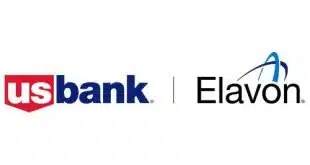To explain today’s mergers and acquisitions in merchant acquiring, mix a hefty dose of technology and a dash of foreign spices with traditional flavors like greater scale. And don’t forget a little fear.
For years, greater scale seemed to be the big driver of mergers and acquisitions in the merchant-acquiring industry. Technology, of course, traditionally has been an important factor too. Over the past year, however, access to new technology has become more prominent as processors scramble not only to survive, but also to distinguish themselves in a fast-changing market.
This quest for new technology comes as the cogs that drive the merger machine are humming along quite smoothly in 2018.
“You have a combination of good economy, money, and fear factor—and technology,” says payments-industry analyst Lawrence Berlin, a senior vice president at Chicago-based First Analysis Securities Corp.
The nexus of this technology drive is the corps of independent software vendors that develop vast arrays of business-management applications for merchants, many tailored for the point of sale. Acquirers covet relationships with ISVs because such pair-ups can make for more lasting and profitable relationships than traditional price-driven ties.
Acquisition targets with desirable technology and ISV relationships have received buyout offers with some of the highest multiples to pre-tax earnings among recent deals. Examples include First Data Corp.’s acquisitions of CardConnect Corp. and BluePay Holdings Inc., and the buyout of Cayan LLC by Total System Services Inc. (TSYS).
“The whole focus on ISVs and integrated POS—that continues to be the driving force,” says Jared Drieling, senior director of business intelligence at The Strawhecker Group, an Omaha, Neb.-based consulting firm.
Technology and scale, however, don’t explain everything occurring today in acquiring-industry M&A. International opportunities are playing an important role in the increasingly globalized payments market, and U.S. companies can be sellers as well as buyers.
In January, suburban Cincinnati-based processor Vantiv Inc. closed on its $11.7 billion acquisition of London-based Worldpay Group plc, with the merged entity now known as Worldpay Inc. (“Let’s Make a Deal,” December, 2017). And the British processor Paysafe Holdings UK Ltd. in April announced a pending deal to buy iPayment Holdings Inc., a big independent sales organization based in Westlake, Calif.
Still, access to ISVs and their technology comes up as frequently if not more than any single reason driving recent acquiring-industry deals, and that dynamic doesn’t seem likely to change any time soon.
“Tech will be a big factor going forward,” says Berlin.
‘A Lot of Cheap Money’
The tech trend is getting a boost from the still relatively low cost of financing despite recent interest-rate increases from the Federal Reserve.
“Right now, there’s a lot of cheap money out there,” Berlin says.
A reflection of tech’s desirability is the multiples big acquirers are paying for smaller processors and ISOs that have coveted technology platforms and access to ISVs.
The $1.05 billion that Columbus, Ga.-based TSYS paid for Boston-based Cayan, for example, represented a multiple of 21 times Cayan’s earnings before interest, taxes, depreciation and amortization (EBITDA), according to an analysis by The Strawhecker Group (chart, page 16).
The Cayan multiple was the highest of the 2017-18 deals examined by the consultancy for which financial data was available. Cayan brought to TSYS 70,000 merchants generating $26 billion in annual gateway and processing volume combined, 100-plus integrated-payments partnerships, and Cayan’s so-called Genius platform, a set of software and hardware tools for merchants. Former Cayan chief executive Henry Helgeson is now president of integrated solutions at TSYS.
“Generally, the tech and ISV concentration is a driver,” says Drieling. “These could also be strategic vertical plays.”
Such cases could include “a major foothold in a particular, growing vertical” like business-to-business payments, geographic concentration, or tier size such as small-and-medium-size businesses, he says. “In the case of Cayan, they had a little bit of it all, including a tech-focused SMB merchant base.”
The Cayan acquisition capped a years-long drive by TSYS to diversify beyond its straight third-party processor origins into a direct player in the acquiring industry. The effort picked up speed in 2011 when it bought the part of a joint acquiring venture with First National Bank of Omaha that it didn’t own. It continued through acquisitions of the payment-facilitator processor ProPay Inc. in 2012 and the big ISO TransFirst Holdings in 2016.
For now, TSYS will be focused mostly on digesting Cayan, though it’s open to more acquisitions, according to chief executive M. Troy Woods.
“I think we’ve got a lot of good assets under [our] roof,” Woods said at an April 25 conference call with analysts to review first-quarter results, according to a Thomson Reuters StreetEvents transcript. “Now with all that said, we continue to look at opportunities, and we will continue to look at anything that we believe can help us with scale, help us particularly in our verticals, and with our integrated-solution properties.”
‘Taking Market Share’
Atlanta-based First Data also proved it is willing to open its wallet when it paid EBITDA multiples of 19.7 and 16 for CardConnect and BluePay, respectively.
“We had no presence really in the ISV business a year ago,” First Data chief financial officer Himanshu Patel said during the company’s April 30 first-quarter earnings call. “We are clearly taking market share in that space rapidly, and the tools that we’ve acquired through there, through those businesses, are also helping us take share in the broader partner space, which includes agents.” He added that “we feel great about those businesses, and we’re seeing that in the revenue numbers now.”
The acquired brands have consolidated under the CardConnect name, though the BluePay payment gateway remains in place. The technology, operations, and sales teams have been merged, First Data said in May.
Besides outright acquisitions, First Data is willing to invest in companies with desirable technology. It recently participated in a $12 million funding round for Salido Inc., a restaurant POS system provider, CNBC.com reported in May.
Square Inc., the upstart of the acquiring industry, is an active player in the restaurant space, having introduced its Square for Restaurants, a POS service, in May. That move came just after the San Francisco-based firm bought Weebly Inc., which provides Web stores for entrepreneurs. That acquisition could boost Square’s effort to recruit larger merchants.
Meanwhile, according to its top executives the now-completed merger of Vantiv and Worldpay has created new opportunities for the company to export legacy Vantiv’s extensive ISV systems and expertise first to the United Kingdom, legacy Worldpay’s home field, and ultimately to the rest of Europe.
A pioneer in ISV payments, Atlanta-based merchant acquirer Global Payments Inc. has not announced any major deals this year. It is, however, exploiting some of the opportunities it gained last September when it bought from Vista Equity Partners two major units of the Active Network, a provider of management software for event sponsors, for $1.2 billion.
Along with Active, Global gained access to Vista’s approximately 45 portfolio companies as the private-equity firm’s preferred payments partner, opening a door for it to offer integrated payments to business-management software developers.
Last month, Global struck a deal with RA Outdoors LLC, which does business as Aspira, under which it will provide payment services. Dallas-based Aspira provides software for reservations and other campground-management tasks, and for hunting, fishing, and recreational-vehicle licensing.
“This is the third Vista portfolio company to select Global Payments as its partner in as many quarters,” Global chief executive Jeffrey S. Sloan said on a May 3 conference call with analysts to review first-quarter financial results. “As we discussed in our February [earnings] call, we continue to invest in leading-edge technologies to accelerate growth of product distribution and to provide seamless connectivity to our customers and partners in an increasingly complex world.”
International Expansion
The apparent biggest acquiring-industry deal announced so far this year is Paysafe’s pending acquisition of iPayment, which could close this month. This deal puts more focus on market share and international expansion than on tech.
Though the parties did not disclose financial terms, iPayment serves more than 137,000 merchants and processes in excess of $28 billion in volume annually—likely indicators that the company won’t come cheap.
Last year, Paysafe laid out $470 million in cash to buy Shenandoah, Texas-based Merchants’ Choice Payment Solutions, which processes for 60,000 mostly small and mid-sized merchants generating $14 billion in volume. With the addition of iPayment, Paysafe will rank as one of the five largest U.S. non-bank payment processors, the company said in April.
“Paysafe has been on an acquisition path for the past couple of years and iPayment was a strong strategic fit,” a Paysafe spokesperson says by email.
Paysafe itself was acquired last December when private-equity firms Blackstone Group LP and CVC Capital Partners took the firm private in a deal valued at $3.89 billion.
But don’t forget a dash of fear, too, as analyst Berlin mentions. Specifically, the fear by acquirers of not having the technological resources needed to compete. That fear can drive deals.
“Where people are fearful is because of the technological shifts,” he says.
—With additional reporting by Kevin Woodward and John Stewart





